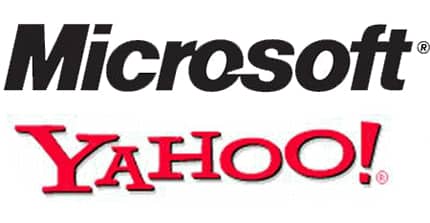Microsoft and Yahoo have received the green light from the US Department of Justice and European Commission to go ahead with their plans for an internet search alliance, pitting them against the world’s current number one search company, Google.
Bing will turn into a better search engine when Microsoft takes over Yahoo search, and will be better able to compete with search giant Google, the U.S. Department of Justice said in its decision supporting the deal.
By handling the back end of all Yahoo searches, Microsoft is set to gain access to almost three times the search queries it currently receives with Bing alone.
“Although we are just at the beginning of this process, we have reached an exciting milestone,” Microsoft CEO Steve Ballmer said in a statement.
“I believe that together, Microsoft and Yahoo will promote more choice, better value and greater innovation to our customers as well as to advertisers and publishers.”
Microsoft and Yahoo has proposed a 10 year partnership, with the key element of using Microsoft Bing as the default search engine on all Yahoo websites.
Yahoo can then focus on display advertising, news, finance and sports features, as well as developing new ways to offer Bing’s search results to Yahoo users.
The deal means that Yahoo can earn revenue from search ads on its owned and operated sites without having to run its own internet search engine.
Yahoo will therefore free up resources to invest more time in core web properties, new mobile services and its display-advertising business.
“Yahoo gets to do what we do best: combine our science and technology with compelling content to build personally relevant online experiences to our users and customers,” said Yahoo CEO Carol Bartz, in a statement.
Under the agreement, Microsoft will pay Yahoo an initial rate of 88 per cent of search revenue generated on Yahoo sites for the first five years of the deal.
Yahoo has said it expects the arrangement to add $US500 million (£324 million) to annual operating income and $275 million (£178 million) to cash flow. It further expects to cut capital expenses by $US200 million (£129 million).

